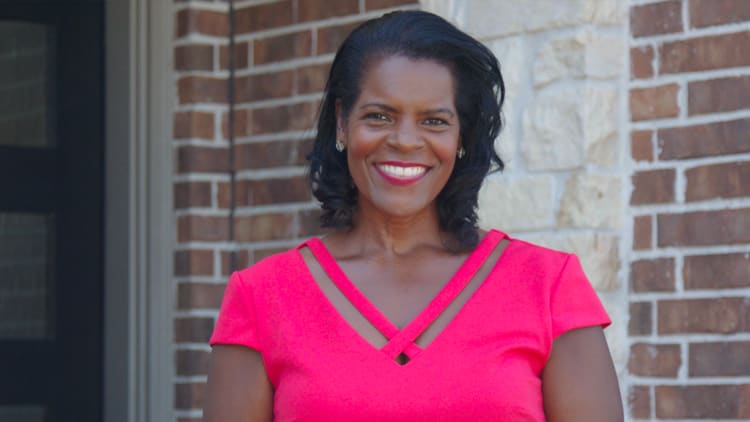It may be hard to imagine digging yourself out of $100,000 in credit card debt and boosting your credit score by 400 points. But it’s possibleâjust ask Lynnette Khalfani-Cox.
Khalfani-Cox boosted her credit score from the low 400s to a perfect 850 after spending three years paying down her debt. Now, the New York Times bestselling author teaches others how to do the same through her books, including the newly released “Bounce Back: The Ultimate Guide to Financial Resilience,” and her financial education platform, The Money Coach.
Although her credit score sits at 806 as of the last report date on Jan. 20, she says she still receives the same benefits as when she had a perfect 850.
That’s because Khalfani-Cox’s most recent score still places her in the “exceptional” credit score category. Here are the ranges Experian defines as poor, fair, good, very good and exceptional.
- Poor: 300 to 579
- Fair: 580 to 669
- Good: 670 to 739
- Very good: 740 to 799
- Exceptional: 800 to 850
But you don’t necessarily need to be in the 800 range to get the most favorable terms when you’re applying for something like a new credit card or personal loan, says Khalfani-Cox.
Over the past year, her score has fluctuated from 765 in February 2023 to 839 in August of that year to then 806 as of January 2024.
“My 800 or my 850 FICO score is not going to get me any better loan rates or terms than the person who has a 760 or 780 FICO score,” Khalfani-Cox tells CNBC Make It. “Once you’re in the perfect credit scoring range, banks are going to fall all over themselves to do business with you.”
How Khalfani-Cox stays in the ‘perfect’ credit score range
Since your payment history counts for 35% of how your credit score is calculated, Khalfani-Cox is sure to never miss a payment.
“I have a very long established credit history over 25 years,” she says. “I have an excellent payment track record and I never miss any payments.”
Additionally, Khalfani-Cox never uses up her entire credit limit, which helps her keep her credit utilization rate under 10%. Your credit utilization rate is the amount of your available credit you’re using and counts for another 30% of how your credit score is determined.
“So-called FICO high achievers who are in the 760 to 850 range generally have a 10% or less credit utilization rate, and I usually keep my stuff in that zone,” she says.
She also doesn’t apply for new credit cards or loans unless she “truly needs it.”
That’s because when you apply for a new line of credit, lenders perform what’s called a “hard inquiry,” in which they pull your credit report from one of the three main credit bureaus â Experian, Equifax or Transunion â to take a look at your credit history and get an idea of how risky it could be to lend funds to you.
How much a hard inquiry affects your credit score varies, and it only accounts for 10% of how your score is calculated. However, it can temporarily lower your score by a few points, according to FICO’s website.
That matters because a small drop in your credit score can make a big difference when it comes to getting the most favorable terms from lenders.
“If you were in the 760 point range, now you’re a 748 or 750, and now you just blew being able to get the best loan rates and terms on a mortgage or credit card,” Khalfani-Cox says.
On the upside, hard inquiries don’t stay on your credit report forever. Although they can remain on your credit report for two years, only inquiries from the past 12 months are considered when calculating your credit score, per FICO.
Ultimately, Khalfani-Cox credits maintaining her exceptional credit score to making on-time payments, keeping her balances low and not overusing her available credit.
“Just by following these three strategies, it really does help to keep me in that perfect credit scoring range of 760 to 850 points,” she says.
Want to land your dream job in 2024? Take CNBC’s new online course How to Ace Your Job Interview to learn what hiring managers are really looking for, body language techniques, what to say and not to say and the best way to talk about pay. CNBC Make It readers can save 25% with discount code 25OFF.


